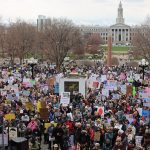With President Trump’s recent decision to declassify files pertaining to JFK’s assassination, the topic of conspiracies has received a reinvigorated spotlight, and for good reason. Among the myriad of mysteries that surround this somber episode in American history is the enigmatic death of journalist Dorothy Kilgallen, a figure whose contributions to investigative reporting have often been overshadowed by the powers that be.
Kilgallen was not just any reporter; she was a pioneering voice with substantial influence in the media landscape of her time. As the only journalist to interview Jack Ruby, the man who silenced Lee Harvey Oswald just days after the assassination, Kilgallen had a front-row seat to the events that many believe were anything but straightforward. She dove into the JFK story with fervor, and in a twist worthy of a Hollywood screenplay, her relentless quest for the truth may have ultimately led her to an untimely end.
Former defense attorney Mark Shaw, author of “The Reporter Who Knew Too Much,” has made it clear that Kilgallen’s inquiries raised eyebrows among powerful circles. When she expressed doubts about the official narrative—that Oswald acted alone—the establishment didn’t take kindly to her determination. In contemporary parlance, one might say she was “canceled” before it was even a thing, continuously monitored and even put on surveillance lists by the FBI during her investigation into the case.
The JFK Assassination and the Mysterious Death of a Reporter Investigating the Crimehttps://t.co/1GB7rJwbwC
— PJ Media (@PJMedia_com) April 8, 2025
Kilgallen’s personal connections to the Kennedy family added layers of complexity to her role as a journalist. Not only did she cherish a friendship with JFK, but she also faced the gut-wrenching task of reporting on the assassination of a man she knew well. After his death, Kilgallen did not shy away from unraveling what she distinctly felt was a cover-up, leading her all the way to interviewing law enforcement officials who questioned the official story. Unbeknownst to her, she was peering too closely into the machinations that kept the truth hidden.
Much like any good plot twist, Kilgallen’s death is shrouded in mystery, sparking speculation around her undisclosed findings. Just hours after her demise, crucial documents linked to her investigation vanished without a trace. Some believe this could fortify the narrative of a politically motivated cover-up, with implications reaching deep into criminal networks intertwined with the assassination itself.
Instead of fading into the annals of history, Kilgallen’s story illuminates critical warning signs about the lengths to which power players will go to maintain their narratives. As discussions of her work resurface, it becomes crucial for today’s generation to remain vigilant and skeptical of mainstream accounts. As this tale unfolds, it becomes increasingly evident that the fight for transparency in the decades following JFK’s assassination is far from over, leaving citizens to ponder just how much is still lurking in the shadows of American politics.




